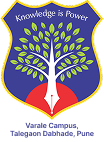Report on Anger and Stress Management Session
Speaker : Prof Komal Budhawani
Venue : Seminar Hall
Timing : 10.00 AmTo 12.00 Noon
Date : Thursday 25 March 2021
Participants : 85
Introduction:
A comprehensive Anger and Stress Management Session was conducted for the MBA students of Dr. D. Y. Patil’s Institute of Management and Entrepreneur Development (IMED). The session aimed to equip students with effective strategies to recognize, understand, and manage anger and stress in their personal and professional lives. The session emphasised the importance of emotional intelligence, resilience, and coping mechanisms to foster a positive and productive academic experience.
Objectives:
The key objectives of the session were:
- To raise awareness about the impact of anger and stress on academic performance, personal well-being, and relationships.
- To provide insights into the sources and triggers of anger and stress among MBA students.
- To introduce practical techniques for managing anger and stress effectively.
- To promote emotional intelligence and self-awareness.
- To empower students with coping mechanisms for challenging situations.
Session Overview:
The session was conducted in the form of a Guest Session and interactive discussion, facilitated by a seasoned Expert specialising in stress and anger management. The following topics were covered during the session:
- Understanding Anger and Stress:
– Differentiating between anger and stress.
– Identifying common causes and triggers.
– Recognizing the physiological and psychological effects of anger and stress.
- Effects of Anger and Stress on Performance:
– Highlighting the adverse impact of unmanaged anger and stress on academic achievements and career prospects.
– Discussing the importance of maintaining a positive and composed demeanor in professional settings.
- Developing Emotional Intelligence:
– Explaining the concept of emotional intelligence and its significance in managing emotions effectively.
– Teaching techniques for self-awareness and understanding emotional responses.
- Coping Strategies for Stress:
– Introducing relaxation techniques, including deep breathing and mindfulness exercises.
– Promoting physical activities, such as yoga or regular exercise, to reduce stress levels.
– Encouraging the practice of time management to balance academic and personal responsibilities.
- Managing Anger:
– Discussing healthy ways to express anger without causing harm to oneself or others.
– Introducing conflict resolution strategies for handling challenging situations.
– Emphasizing the importance of seeking professional help if anger issues persist.
Interactive Activities:
To engage the participants actively, the session included the following interactive activities:
- Role-Playing Exercises: Students participated in role-playing scenarios to practice conflict resolution and assertiveness in challenging situations.
- Mindfulness Meditation: A guided mindfulness meditation exercise was conducted to help students experience the benefits of relaxation techniques.
- Group Discussions: Participants were encouraged to share their experiences and challenges related to anger and stress management, fostering a supportive learning environment.


